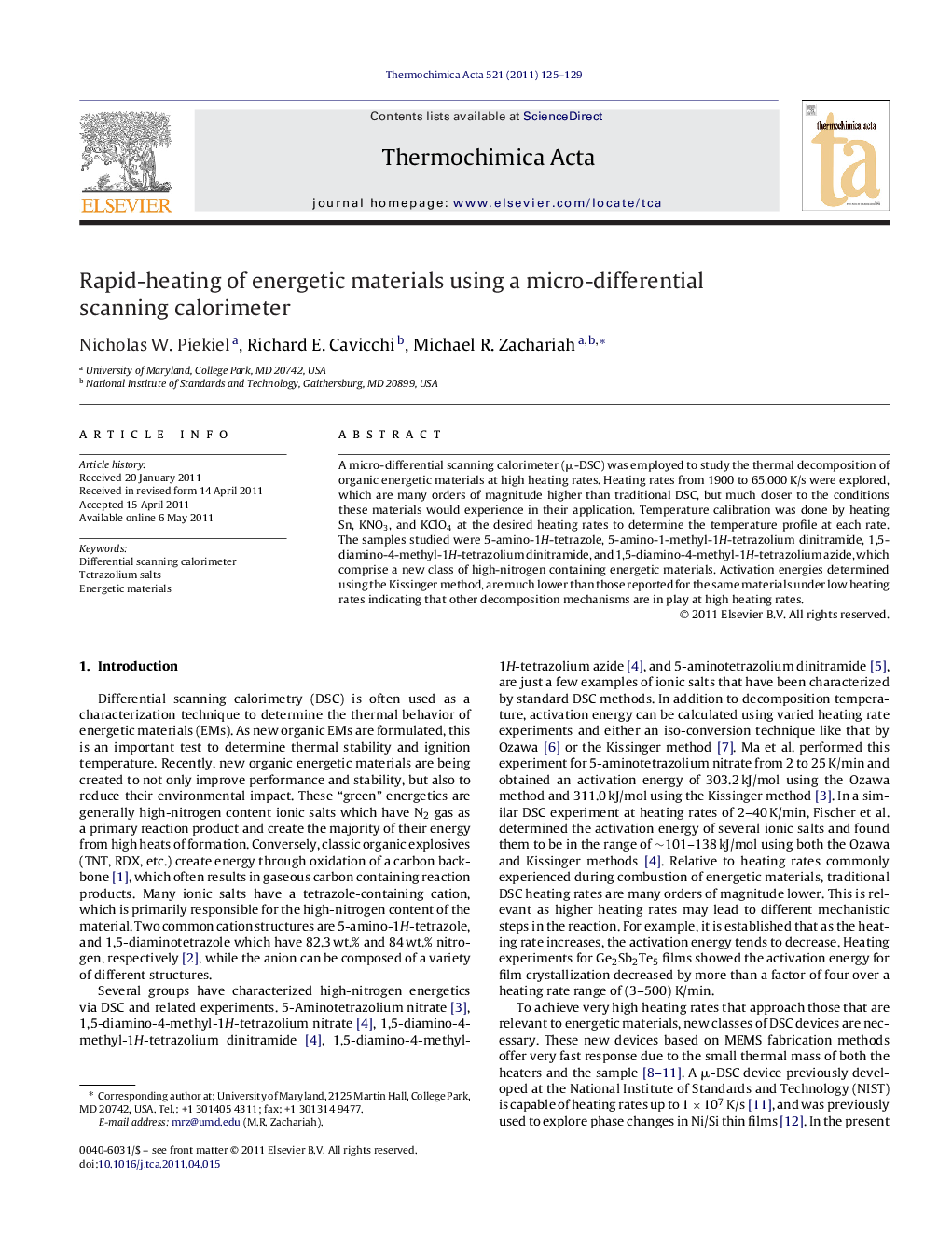| Article ID | Journal | Published Year | Pages | File Type |
|---|---|---|---|---|
| 674501 | Thermochimica Acta | 2011 | 5 Pages |
A micro-differential scanning calorimeter (μ-DSC) was employed to study the thermal decomposition of organic energetic materials at high heating rates. Heating rates from 1900 to 65,000 K/s were explored, which are many orders of magnitude higher than traditional DSC, but much closer to the conditions these materials would experience in their application. Temperature calibration was done by heating Sn, KNO3, and KClO4 at the desired heating rates to determine the temperature profile at each rate. The samples studied were 5-amino-1H-tetrazole, 5-amino-1-methyl-1H-tetrazolium dinitramide, 1,5-diamino-4-methyl-1H-tetrazolium dinitramide, and 1,5-diamino-4-methyl-1H-tetrazolium azide, which comprise a new class of high-nitrogen containing energetic materials. Activation energies determined using the Kissinger method, are much lower than those reported for the same materials under low heating rates indicating that other decomposition mechanisms are in play at high heating rates.
► Used a μ-DSC device capable of rapid heating rates of up to 107 K/s. ► Rapid heating rate studies may probe different mechanistic pathways. ► Studied reaction of novel tetrazole containing energetic materials. ► Used heating rates that are many orders of magnitude greater than traditional DSC. ► Materials showed much lower activation energies under rapid heating conditions.
